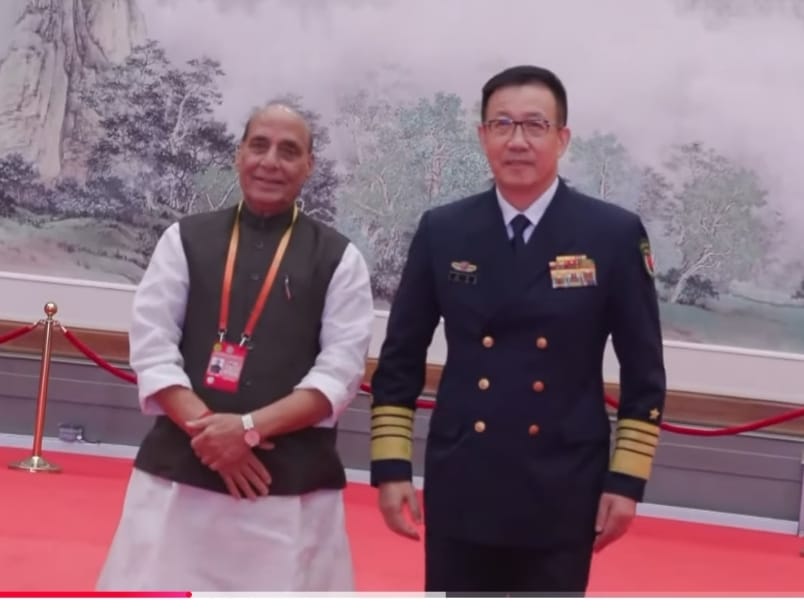New Delhi; India’s growing diplomatic isolation at the recently concluded Shanghai Cooperation Organisation (SCO) summit has triggered serious concerns among strategic experts and former diplomats. The forum, once seen as an important multilateral platform where India could balance its strategic autonomy between East and West, now reflects the shrinking influence of New Delhi on the global stage. Analysts point to repeated foreign policy missteps under the current regime as the reason for India’s diminishing clout – a situation that has culminated in an embarrassing isolation at a critical geopolitical platform like the SCO.
Despite Prime Minister Narendra Modi’s early posturing of assertive diplomacy — with slogans like “Neighbourhood First” and “Vishwa Guru” — the reality on the ground is beginning to reveal a strategic vacuum. India was notably side lined during the discussions on major regional issues, including Afghanistan, counterterrorism, regional security cooperation, and connectivity projects. The absence of strong Indian influence during SCO deliberations, observers say, is symptomatic of a broader foreign policy breakdown.
Former Indian diplomats, speaking on condition of anonymity, were blunt in their assessment: “The Shanghai Cooperation Organisation is not just another multilateral club. It represents the shifting balance of power in Asia, and India had a crucial seat at the table. But that presence has been reduced to a formality due to our lack of clear strategic direction,” said one veteran diplomat.
At the heart of the criticism lies the performance of External Affairs Minister S. Jaishankar. Initially hailed as a seasoned technocrat and diplomat with deep knowledge of global affairs, Jaishankar’s tenure is now increasingly under scrutiny. Critics argue that he has functioned more as a spokesperson of the ruling regime’s ideology rather than a steward of India’s strategic interests. His combative tone in international forums and frequent emphasis on nationalist rhetoric, while popular domestically, has reportedly done little to build alliances or soften adversaries abroad.
Several foreign policy experts argue that Jaishankar’s tenure has been marked more by reactive posturing than proactive diplomacy. “Whether it’s India’s lack of leverage in West Asia, confusion over its China policy, or its failed balancing act between Russia and the US, the ministry seems to lack a coherent worldview,” said Professor Rajan Menon, a geopolitical analyst.
Yet, blaming Jaishankar alone would be short-sighted. The larger failure lies at the top – with Prime Minister Narendra Modi, who continues to centralize foreign policy decision-making in his office. The PM’s preference for headline diplomacy – grand summits, photo-ops with world leaders, and stadium-sized diaspora rallies – has not translated into sustainable geopolitical gains. While Modi’s global outreach once promised to elevate India’s voice in international decision-making, recent trends show a starkly different reality: India finds itself increasingly isolated, whether on climate change, regional conflicts, or multilateral institutions.
This isolation is particularly dangerous given the evolving global power dynamics. With China playing a dominant role in Asian security architecture and Russia reasserting its presence despite Western sanctions, India’s strategic ambiguity has made it an unreliable partner in the eyes of both allies and adversaries. Even traditionally supportive nations like Iran and Central Asian republics seem to be gravitating closer to China’s orbit, leaving India with diminishing space to manoeuvre.
India’s refusal to clearly articulate its positions on conflicts such as the Russia-Ukraine war or the Iran-Israel crisis — often choosing abstention or silence — has only worsened perceptions of strategic indecisiveness. At the SCO summit, this vagueness was evident once again. While others took clear stands, India’s interventions remained superficial, failing to address the key regional concerns.
Calls are now growing for a serious rethink. Many believe that sacking Jaishankar could be the first step, but not the last. What India needs is not just a new face at the External Affairs Ministry but a comprehensive overhaul of its foreign policy strategy. The country must return to its roots of non-alignment blended with proactive engagement — not confused isolationism masked as strategic autonomy.
The world is realigning rapidly, and India cannot afford to be a spectator. If the government fails to acknowledge and rectify the current trajectory, more embarrassments at global forums are inevitable — and the consequences for India’s geopolitical standing could be severe.






